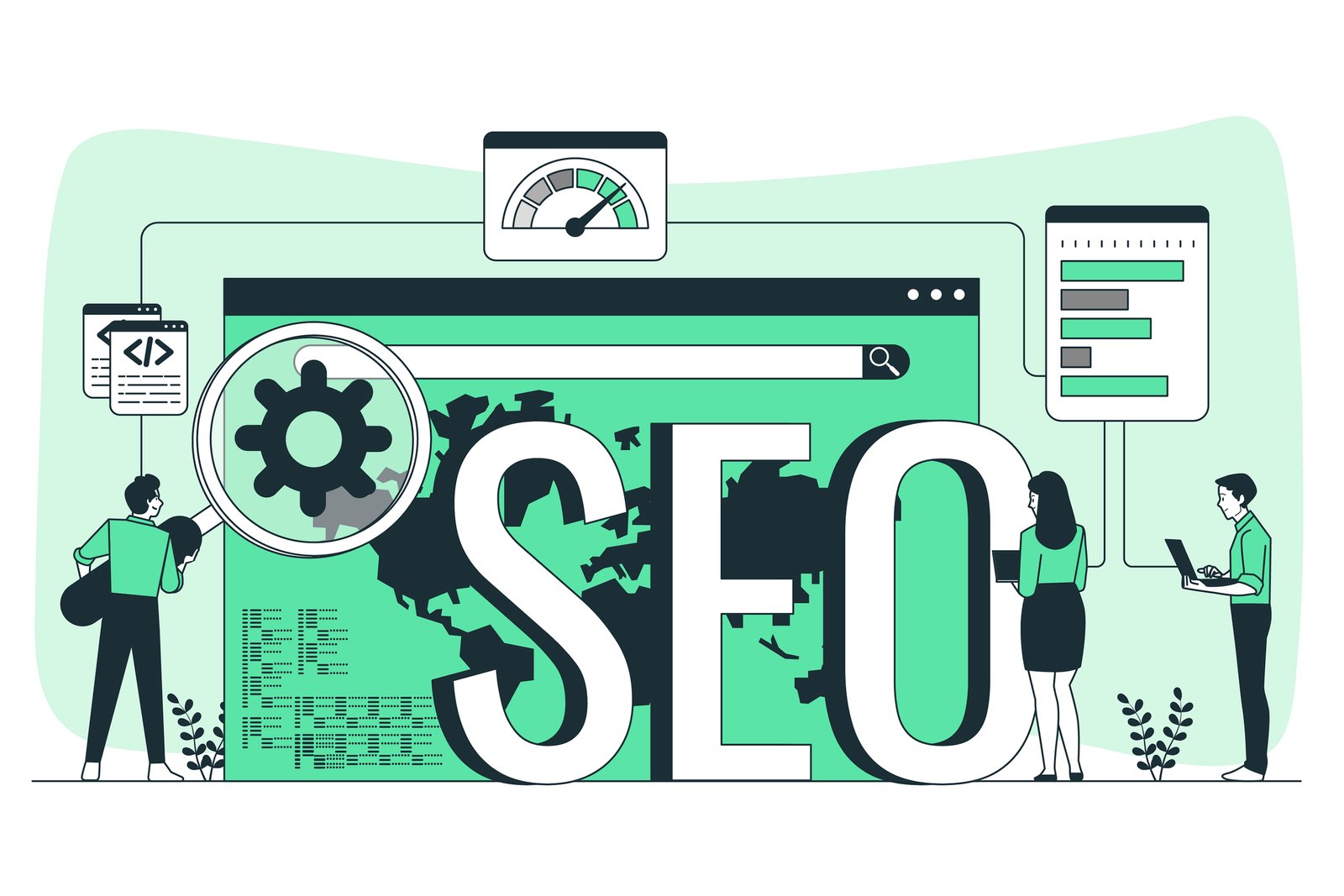The short answer to this question is that SEO is simply how easy or difficult your website is to view in any search results. The better your SEO, the higher your website ranks in search engines like Google, making it easy for people to find you. Whether you are a business owner or a marketer wondering what the fuss is about SEO, there’s no denying that the effect it has on search visibility is that it puts your site front and center when users search terms that relate to your products or services. But how does it exactly work and why is it so crucial for a website?
In simple terms, let us now reduce the above into how SEO affects search visibility, traffic, and user experience.

How does SEO influence search rankings?
The SEO is about ensuring that search engines understand what the site is about and why it should score high in the ranking. It’s not as simple as just putting numbers in the specific place anymore. Instead, it should help speed the site up, make it user-friendly, and make it more accessible for the search engines to read.
- Keyword Optimization: Perhaps one of the most known of the many aspects of SEO relates to keyword optimization. If you have used the right words and phrases that people are searching for, then your site is much more relevant. This is something Velocity Consulting emphasizes, that matching the content with the terms people type in allows you to go really far in attracting ranking over time.
- Backlinks: Furthermore, these represent external website links pointing toward yours. They are sort of votes of confidence for your website. Respectable sites link to your content, which in turn makes the search engines deem your website more customarily trustworthy, allowing your score to skyrocket.
Does SEO Help Bring in More Traffic?
A higher site ranking attracts more visitors and hence organically drive traffic to your site. Organic traffic includes visitors who land on your site through unpaid search results instead of advertisements.
- Why organic traffic matters: According to The Digital XX, people trust organic search results more than paid ads. When you rank higher in searches, people are more likely to click on your link because they find it relevant for their search.
- Stable growth: SEO, unlike paid advertising, is a long-term approach, generating traffic over time. Once your site has risen through the ranks, that traffic doesn’t just disappear after you stop paying for the ads. That is why SEO is so valuable for long-term growth.
How SEO Boosts Credibility and Trust
It is never about visibility. It is about building trust. The vast majority of users instinctively trust websites that appear higher in the search rankings. The better your SEO, the better chance users will see your site as credible.
- Building trust with search engines: Search engines like Google rank only those websites that they trust. And you build that trust through a combination of excellent content, mobile optimization, and link-building. This increases click-through rates and conversion rates according to Impakt Digital.
How SEO Enhances User Experience
User experience effects SEO. Search engines analyze these factors and will decide to rank you lower if your site is slow, hard to navigate, or not mobile-friendly.
- Page Speed and Mobile Optimization: As of 2019, Google officially included page speed and mobile friendliness in its ranking criteria. Slow-loading sites with mobile-unfriendly versions suffer a notable demotion on the SERP. Attention to mobile optimization tends to put users on your site longer, as Impakt Digital confirms.
- Easy Navigation: A site that is organized properly will encourage the user engagement and thus lower the bounce rate which is the percentage of outbound users after viewing one page. In general, SEO will take care of website organization, thus giving easy navigation for the user as well as the search engines.
Does SEO Target the Right Audience?
One of the advantages of SEO is that it attracts exactly those visitors who are interested-a large audience already-in your offerings. In other words, by optimizing your content for the focused search terms that your audience is using, SEO ensures that the traffic that comes to your content is more likely to convert into leads or customers.
- Visitors with Intent: If someone searches for “best organic coffee,” and your coffee company boasts optimized content targeting that phrase, they will be more inclined to land on your website. As Velocity Consultancy points out, SEO ensures that your website satisfies the input from potential customers and goes a long way toward attracting visitors who are already interested in your offerings.

SEO and Google’s algorithm updates
SEO strategies are by no means static. They are many times compelled to change according to the newest trends introduced by search engines. These changes may include an algorithm update by major search engines like Google. The August 2024 Core Update focuses very specifically on adherence to user-first content and overall site quality.
- Content is Now King: Quality content that is of utility to users is craved now more than ever. Google’s suite of recent updates rewards websites that provide clear answers to user questions and couple them with useful information.
- Technical Considerations: Again, how technically sound isn’t one of the rankings anyway, other than basics like load time and security that have to be accomplished. Having good content alone is good to rank well, but it does have to be included in a way where navigation through the site becomes easy and accessible to every search engine as well as every user.

Measuring SEO Success: How Do You Know It’s Working?
It is one thing to employ an SEO strategy and quite another to really know whether one’s efforts are working. There are several key metrics that help quantify the efficacy of an SEO tactic, and they are as follows:
- Organic Traffic Growth: Tools like Google Analytics let you know how many people are visiting your site by way of organic search. If your SEO is working, you will start to see this number go up over time.
- Keyword rankings: You can get a good feeling about how effective the strategy is by checking where your website is ranking for the keywords you are targeting. Better ranking means better visibility.
- Conversion rates: Traffic is good, but conversions are the main goal. Whether it be a sale, signup, or phone call, knowing how many visitors are taking action on your website will help quantify how successful your SEO is in attracting a relevant audience.
Final Thoughts on the Impact of SEO on Your Search
SEO is a pivotal factor determining how likely your website will be seen by a potential set of customers. From optimizing the rank of your website to attracting better organic traffic, from raising credibility to highlighting user experience. SEO has a wide aspect range. It is essential to remain abreast on optimization trends to stay visible online, as search engines update their algorithms, such as the August 2024 Core update. Digital marketing courses help you to stay ahead, teaching you the latest skills in SEO, content marketing, social media strategies, and more.
Whether your objective is to ramp up business, raise traffic, or gain credibility with your audience, SEO and digital marketing strategies come to the forefront.







